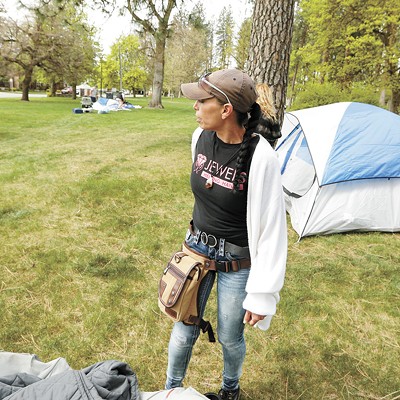
“Ben brings a wealth of knowledge to our membership organization,” Edie Rice-Sauer, current board chair, said in a statement.
Stuckart, in an interview last week, said the position will only be part-time, and that he'll be doing consulting work on the side. He says that the Spokane Low Income Housing Consortium approached him recently about the job.
"For our failing housing stock and for our need to keep people's rents low and our need to get people off the street, one thing that the experts in the fields have told me, and in all my research, is that housing is the undergirding solution," Stuckart says.
"I do understand housing," Stuckart insisted last year during the mayoral campaign. "I'll go down fighting that I understand the housing market very well, and I'm doing as much as I possibly can."
During last year's mayoral campaign, Stuckart lamented that, because he was trying to differentiate himself from his father in his early years on the council, he was slow to see the importance of the housing debate.
He says he regrets that he didn't have more success increasing density in Spokane's Centers and Corridors, specific areas around important streets and intersections where the city aims to target growth. But residential development has continued to be slow in many of those areas.
Stuckart says the city launched density pilots on Monroe Street and Perry Street, though they haven't been completed.
"It took me a long time to get that launched, it didn't get finished," Stuckart says. "Would have loved to see that finished, because I don't know if it will ever cross the finish line."
He says the problem with increasing the density in one neighborhood at a time, however, is that you end up creating an artificial market, which can spike prices and intensify neighborhood tensions. So going forward, he recommends, the city should increase the density at all the remaining Centers and Corridors all at once.
"You do it all at once, and it doesn't spike those up as much," Stuckart says. "I wish we could have got to that point, where we have density in all our centers and corridors."
Stuckart says one of his goals is to turn the Low Income Housing Consortium into a centralized hub for local and regional data on affordable housing, making it easier for everyone to be on the same page.
"Everybody should have an up-to-date data on low-income housing," Stuckart says.
From there, he says, he wants to make sure the Consortium looks at "federal, state and local policy, what's working, what's not and to try to really lead those discussions."

























